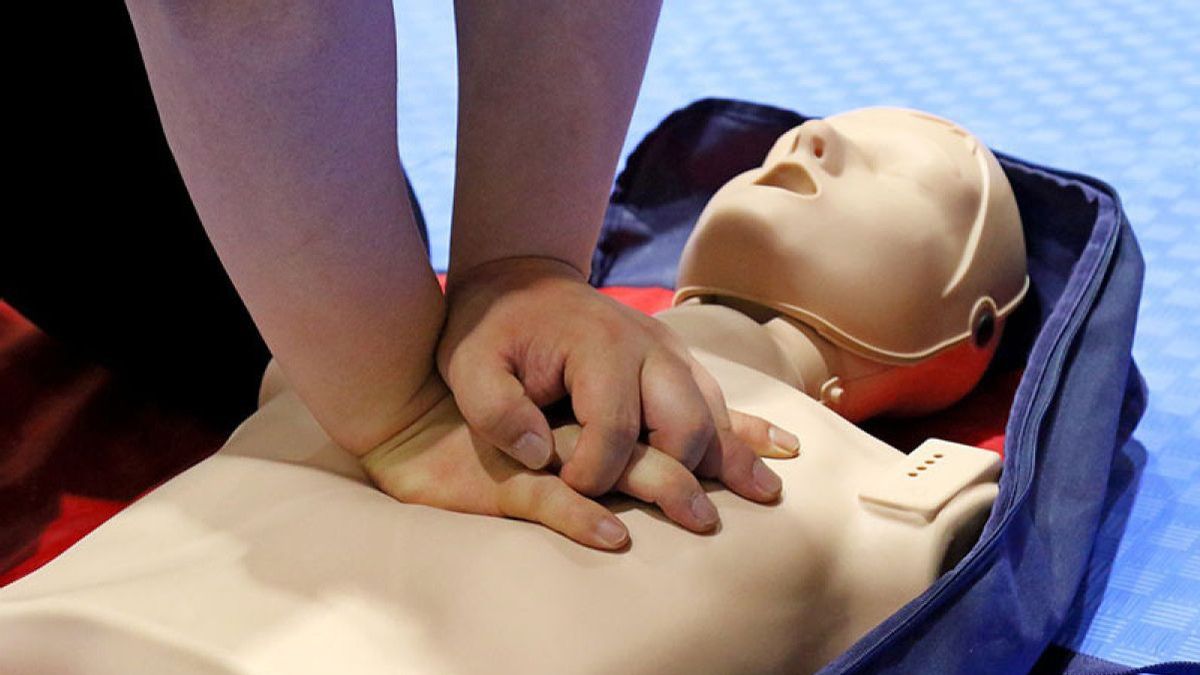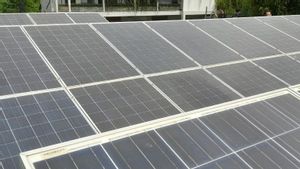JAKARTA A group of international researchers led by Prof. Shigeru Saito from Japan recently released the results of a 24-month clinical study comparing Bioadaptor's latest stent technology with conventional DES (Drug Eluting Stent).
The results of this study were announced at Europe's largest Cardiovascular Intervention Conference, EuroPCR 2024, in order to develop a safe and effective long-term solution forcut heart patients.
Clinical research showed superior results with a failure rate of 1.9 percent compared to 5.5 percent or 65 percent better between Bioadaptors than DES after two years after the procedure.
The study even put forward results that proved more effective for young heart patients and patients with comorbidities such as diabetes.
Nearly 40 years have passed since the firstcutaneous coronarial intervention (PCI) procedure was carried out to widen the narrowing blood vessels by installing stents into blood vessels.
Although effective in widening blood vessels, this method of installing stent often causes incidents of repeated narrowing of blood vessels (restenosis).
Various innovations have been developed to reduce the occurrence of relenosis, marked by the discovery of Stent-Strated Medicine (DES) innovations that release drugs into blood vessels with better proven results.
Despite significant developments, long-term complications remain unavoidable in the use of DES.
About 20-50 percent of patients are still experiencing narrowing of blood vessels after 5-10 years after the PCI procedure.
The permanent stability of DES can limit the natural movement and ability of blood vessels to adapt, thereby increasing the potential for clinical events such as heart attacks, heart failure, and reinstallation of stents.
The risk of narrowing blood vessels is even twice as high in people with heart disease.
Therefore, the latest innovation of Stent Bioadaptor provides fresh air for heart patients, especially for diabetics, considering that clinical trial results indicate a better level of safety and effectiveness to overcome blood vessel blockage and support long-term heart health conditions.
How does Bioadaptor work beyond Drug Stent (DES)?
Cardiologist Dr. dr. Vito Anggarino Damay explains, each works in a different way even though both are effective in opening clogged arteries.
Bioadaptors are the latest stents that combine Drug-Saluted Stents (DES) functions with Bioresorbable Polymer Stents (BRS) using biodegradable materials to support the restoration of arterial functions.
With a design of 3 strands of metal helicals wrapped in drugs and elements of uncagging' that adapt to blood vessels after six months, Bioadaptor restores movement and function oftenuic vessels and restores the natural function of blood vessels.
Bioadaptors have three treatment phases starting with opening and smoothing blood vessels, then releasing drugs gradually to control the formation of healthy tissues.
After recovery, Bioadaptor performs structural adaptation, allowing blood vessels to move and function naturally.
DES is effective at restoring blood circulation in the first phase, but its design blocks blood vessels from moving naturally, increasing the risk of long-term heart complications such as heart attacks and reinstallation.
Prof. Dr. Teguh Santoso from Medistra Hospital Jakarta confirmed that Bioadaptor brings new hope for people withtenuary heart.
The STent DES has a risk of repeated arterial narrowing (restenosis) in the long term, with an acute risk of 20 percent of complications after 5 years and 50 percent after 10 years.
This is a concern for young patients who are active. Bioadaptor reduces the risk of MACE because it restores the physiological function oftenuary vessels.
"Bioadaptors are suitable for most types of PCI cases with excellent safety and efficacy levels," he said.
Ismi Purnawan from RSPAD explained that productive age patients are relatively younger and have an active lifestyle so they must anticipate the risk of relenosis after the installation of a decent DES.
"The bioadaptor allows for greater blood flow and recovery of blood vessel movement back to its natural function. In diabetic patients, Bioadaptor technology has proven to be more effective in reducing MACE risk," he said.
Prof. Ribikini from Italy added that after PCI, diabetic patients have a twice-high risk of heart attacks, especially those that depend on insulin.
"Bioadaptors provide hope for heart patients with diabetes, who have proven safe and effective in curing clogged blood vessels and supporting long-term heart health," he said.
Bioadaptor's latest technology has been developed and tested for more than six years in various countries. In Indonesia, the first installation was carried out in June 2022 at the Jakarta Medistra Hospital by Prof. Dr. Teguh Santoso.
To date, more than 200 actions have been taken.
The main researcher of Bioadaptor from Japan, Prof. Dr. Shigeru Saito, revealed that the study showed a 78 percent decline in clinical events in patients with diseases in left arteries (LAD).
"Bioadaptors have the potential to become a new standard in treating Coronavirus Heart patients," he said.
Elixir Medical Indonesia Country Manager Ati Saraswati added, in recent years, hospitals in Indonesia have not been inferior in adopting the latest technology in Heart treatment because cardiologists in Indonesia continue to follow the latest technological innovation developments.
"We are very proud to be able to present Bioadaptor as one of the most significant breakthroughs in the design ofile heart ring implants over the past 30 years," he said.
SEE ALSO:
Bioadaptors are available in a number of hospitals with the best heart facilities such as Medistra Hospital, Harapan Kita Hospital, Mandaya Hospital, Brawijaya Hospital, Jakarta Heart Center (JHC), Binawaluya Hospital, Mitra Kelapa Gading Hospital, Siloam Kebon Jeruk Hospital and Lippo Village, Gatot Soebroto Army Hospital, Eka Hospital Cibubur, Tangerang, Primaya Hospital Tangerang and Abdi Waluyo Hospital.
"We hope that patients do not need to go abroad for heart care, because hospitals in the country have offered sophisticated facilities, latest technologies and solutions such as Bioadaptor, and which is no less important to support the best heart and cardiovascular specialists, such as those present representing Indonesia at the EuroPCR 2024 event and getting recognition from the international cardiovascular world," he concluded.
The English, Chinese, Japanese, Arabic, and French versions are automatically generated by the AI. So there may still be inaccuracies in translating, please always see Indonesian as our main language. (system supported by DigitalSiber.id)















